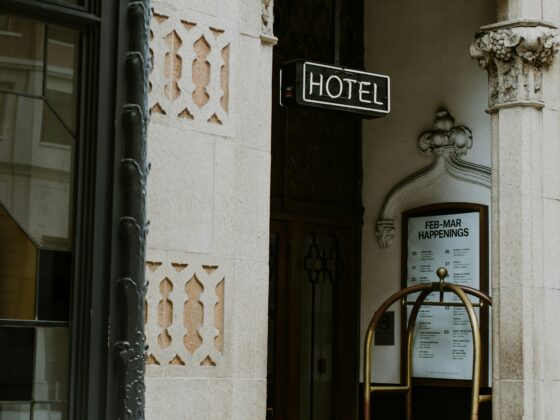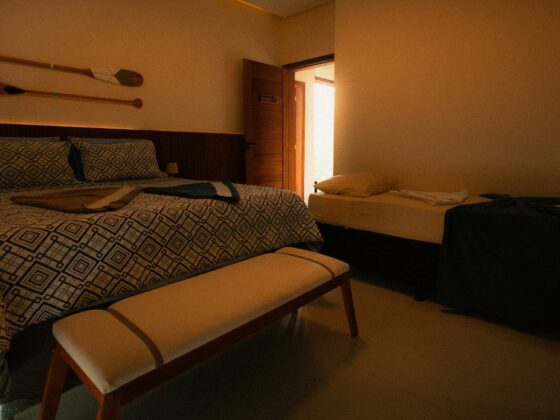The 2024 Paris Olympics posed unique challenges and opportunities for the hospitality sector. During a recent webinar moderated by André Baljeu from techtalk.travel, Lighthouse Director of Hospitality Research Blake Reiter and Shiji ReviewPro Product Specialist Bruno Saragat dissected the performance of the Parisian hospitality market. The discussion centred around dynamic pricing, the influence of short-term rentals, and guest satisfaction throughout the event. Here is a summary of the key insights from the webinar and some points hoteliers can apply to their future revenue strategies, especially for large-scale events.
Key Takeaways:
- Mid-tier hotels overestimated demand, leading to significant price drops in the months leading up to the games.
- Short-term rentals surged, offering more competitive pricing and drawing potential guests away from hotels.
- Luxury hotels maintained stronger pricing due to their less price-sensitive clientele, but hidden fees hurt guest satisfaction.
- Guest satisfaction was high overall, but many mid-tier guests felt they did not receive good value for the money paid.
- A flexible and transparent pricing strategy is essential for hoteliers, particularly during large-scale events where demand can be unpredictable.
A case of misjudged demand
Blake provided a detailed analysis of the pricing patterns observed during the Olympics. Using a pricing curve, he demonstrated how rates peaked at around 530 euros about 335 days before the event. This initial surge was fueled by optimism and the perception of unlimited demand. However, as the event neared, the anticipated demand did not fully materialise, and prices began to decline around 180 days out. By the time of the games, rates had almost halved, bottoming out at approximately 274 euros.
André asked Blake if the “herd mentality” was influencing Parisian hoteliers. Many held high rates early on, but a collective shift towards discounting ensued as bookings stagnated. This domino effect was further amplified by the surge in short-term rentals, which added significant inventory to the market. Hotels found themselves with excess availability and had to cut prices to generate bookings, a move that ultimately led to a steep decline in room rates.
Blake also pointed out that the misjudgment of demand was partly due to the assumption that international travellers would dominate bookings. In reality, many ticket buyers were domestic, with 62% of Olympic tickets purchased by French residents, many of whom did not require accommodation. Additionally, concerns about security threats and logistical uncertainties may have delayed booking decisions, causing a last-minute spike in occupancy.

Short-term rental impact
Blake’s analysis shed light on the competitive pressure the short-term rental market exerts. He noted that the short-term rental supply in Paris remained stable from January 2019 until February 2023, when it began to skyrocket. By July 2024, short-term rental units in the city had reached nearly 170,000, a meteoric rise that more than doubled the availability of comparable accommodations.
This influx of short-term rentals, especially studios and one-bedroom units, significantly impacted hotel pricing. Many travellers chose these alternatives for their competitive pricing and additional amenities. This trend was most pronounced in the mid-tier hotel segment, directly competing with short-term rentals.

Blake and Bruno noted that the surge in short-term rental supply also influenced review volumes. Hotels experienced a decline in review activity, while short-term rentals saw a 90% increase in review volume from August 2023 to 2024. This shift underscores the need for hotels to differentiate their offerings and provide superior value compared to short-term rentals.
Guest satisfaction during the Olympics: High marks amidst pricing challenges
Bruno presented data on guest satisfaction levels, highlighting that Parisian hotels maintained strong performance despite the pricing volatility. Bruno said the city’s hotels maintained high service levels, staff friendliness, and overall guest experience. This positive outcome is a testament to the overall quality of Parisian hotels and their ability to deliver a satisfactory guest experience under pressure.
However, there were areas of concern. The most notable issue was the perception of value for money. Three- and four-star hotels faced criticism for what guests saw as inflated rates during the event. Guests were dissatisfied with “special Olympic rates” that did not match the quality of their stay. In five-star properties, the main complaints included hidden or extra service charges, detracting from the overall experience.
Bruno suggested that a more linear and transparent revenue strategy could have alleviated these concerns. By clearly communicating pricing and avoiding aggressive rate hikes, hotels could have better-managed guest expectations and maintained a sense of value.

The importance of data-driven decisions
Blake and Bruno stressed the importance of understanding historical trends and market dynamics when setting pricing strategies for significant events. Blake emphasised the need to study past events, including other Olympics, to better gauge customer behaviour and price sensitivity. He highlighted the significance of recognising the booking tendencies of different traveller segments, particularly the luxury market, which tends to book later and is less sensitive to price changes.
Bruno underscored the need for a sound revenue strategy that is both transparent and adaptable. Adopting a clear pricing strategy for mid-tier properties that justifies rates is crucial to maintaining guest trust and satisfaction. He pointed out that luxury hotels should balance premium pricing with managing additional charges to maintain the brand’s perceived value. Both experts agreed that having a pricing strategy that guests can understand and perceive as fair is essential for maintaining satisfaction and loyalty.
Conclusion
The Paris 2024 Olympics provided numerous insights into hotel pricing and revenue management during large-scale events. The case of Paris highlights the risks of overestimating demand and the impact of external factors like short-term rental competition. While guest satisfaction remained high, perceived value for money was a critical issue, emphasizing the importance of transparent and strategic pricing. The key takeaway for hoteliers is to use data-driven insights for pricing and maintain flexibility to adapt to market conditions.
Watch the entire session here:
[embedded content]









